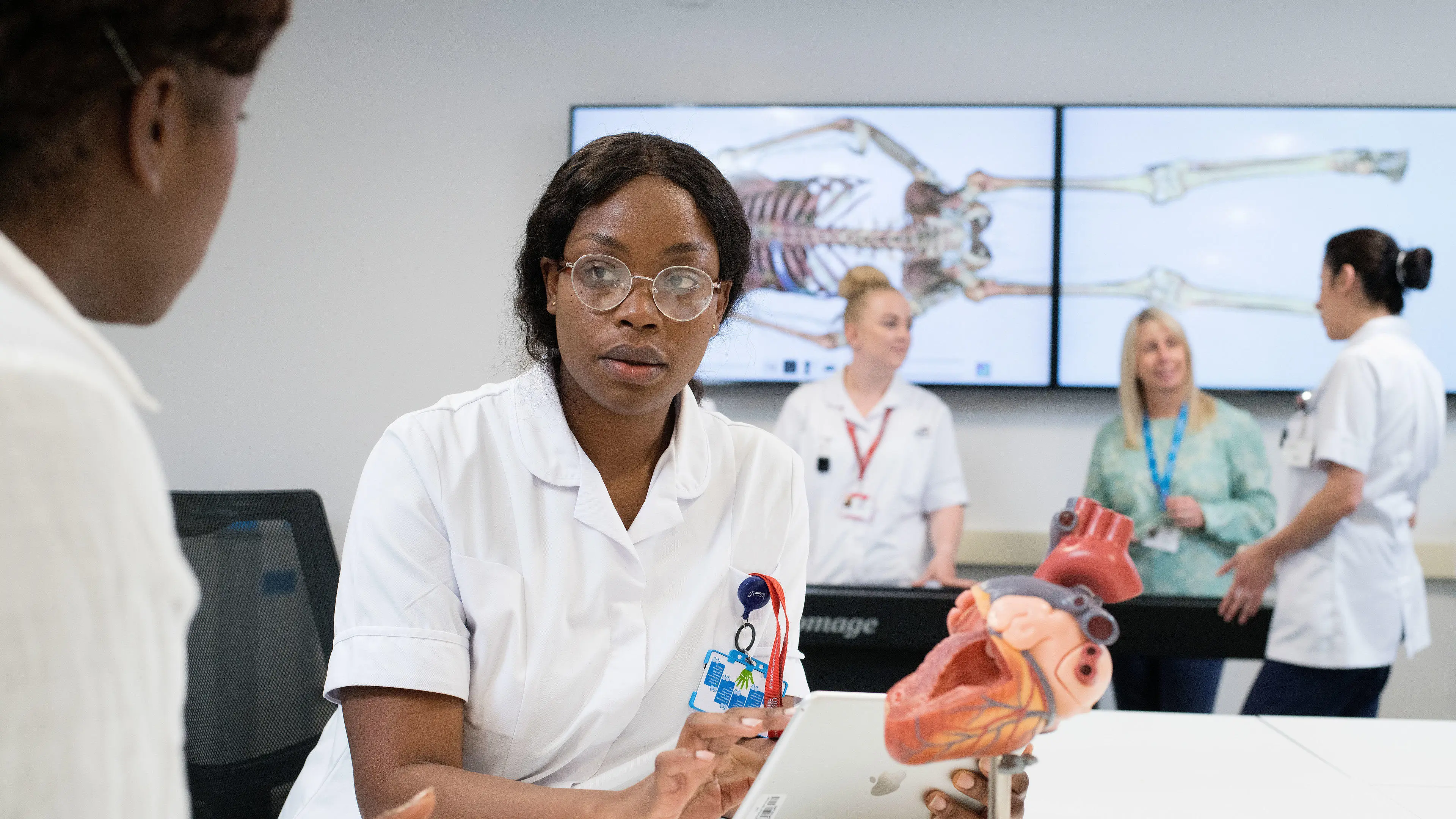Our FdSc Nursing Associate programme has been carefully co-designed to provide the knowledge, skills and professional attributes to meet nursing proficiencies as required by the Nursing and Midwifery Council (NMC).
By combining university learning and hands-on experience, learners gain real-world experience providing them with a breadth of knowledge and a flexible, portable skill set to serve local health populations.
The University of Central Lancashire (UCLan) has been working with Lancashire and South Cumbria NHS Foundation Trust, helping them to develop their Nursing Associates for several years. The Trust, is part of a partnership of health and care organisations, who work together across Lancashire and South Cumbria to empower and support its 1.8 million people to have the best start in life, helping them to live longer healthier lives.
The Trust currently has over 7,500 employees. Since March 2017, 81 Nursing Associates have qualified. Currently, the trust has 58 Trainee Nursing Associates (TNA) enrolled on the programme with a further 30 looking to start in September 2023. The Trust value staff training and especially the course offered at UCLan as its grounded on exciting and innovative teaching, utilising technology in superb clinical skills facilities.
"It has helped with service pressures, given our shortages in staffing. It also improves the offer to patients, that holistic offer from a physical health and mental health perspective."
— Sarah Rampley, Lancashire and South Cumbria NHS Foundation Trust
In addition to the fantastic support provided by UCLan, the Trust gives hands-on support to their degree apprentices. Carol said: “We employ Practice Educators who work alongside our students. We set up inter-professional learning days, which bridge any gaps in knowledge and skills. We look at whether they're up to date with the proficiencies and they have OSCEs (Objective Structured Clinical Examinations): one around a mental health issue, and one a physical health issue. Sarah's worked closely with our Practice Educators around other student issues. She keeps an eye on those that need breaks in learning, and she’s done a lot around the pastoral work and supporting them in practice.”
Seeing how the programme develops staff skills can be a rewarding experience. Carol said: “It’s about not just doing things because you've always done it that way, but it’s about having the ability to question. And if they see something that could be changed, it’s about them influencing policies as well. It's getting them to think about things more widely, using evidence-based practice and research. It's stepping it up.”
Feedback from the Trust has been extremely positive due to the programme assisting with staffing issues and helping to fill vacancies. The value was especially evident in their Community Teams as the programme helped to change the dynamics of community settings by alleviating service pressure and improving outcomes for patients. Sarah adds: “It has helped with service pressures, given our shortages in staffing. It also improves the offer to patients, that holistic offer from a physical health and mental health perspective.”

